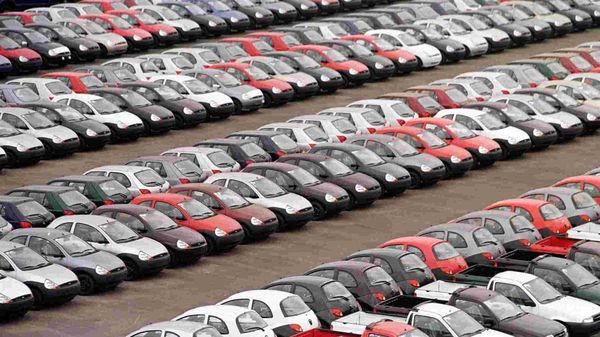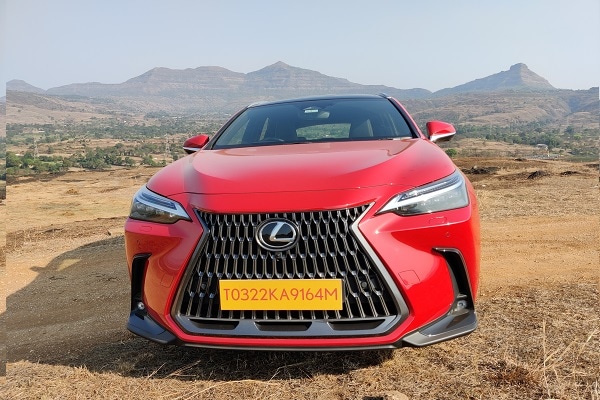Automobiles, planes and trains: China holiday fuel boost at risk


For Rachel Tian -- and millions of other Chinese people -- Lunar New Year festivities look set to be less of a family affair in 2021.
The Beijing-based securities analyst would normally be preparing to drive to her hometown of Baoding in Hebei province, about two hours away by car, to spend time with her parents. But this year she’s decided to follow the advice of her daughter’s elementary school that children not leave the Chinese capital over the holidays.
Also check these Vehicles
Also Read : Oil falls on China's Covid-19 cases, high crude build
“I can’t leave her here and drive back myself," Tian said. “So this holiday will be the first time in my life that I will not be with my parents."
The Lunar New Year travel rush -- which starts on Jan. 28 this year -- runs for 40 days and is normally the biggest mass movement of people on the planet as hundreds of millions of Chinese jump on planes, trains and automobiles to see their extended families. It also provides an annual boost to transport fuel consumption in the world’s biggest oil importer.
That seems unlikely this year as China discourages travel amid a resurgence of Covid-19 that’s threatening the nation’s reputation for controlling its spread. There will be around 1.7 billion trips over the LNY period, the Ministry of Transport has estimated. While that’s potentially 15% higher than last year, when movement was restricted to try and stop the initial coronavirus outbreak spreading from Wuhan, it’s down a massive 40% from 2019.
The comeback in Covid-19 has been most severe in Hebei, where Tian’s hometown is, with authorities isolating the provincial capital of Shijiazhuang, a city of 11 million people. However, there have also been restrictions put in place in Beijing, Shanghai, northeast China and Hong Kong, where a densely populated neighborhood was locked down over the weekend.
People traveling to rural areas will have to present a negative Covid-19 test result before leaving this year. Local governments are also offering incentives to stay home, including rent rebates in Zhejiang province and free meals and tickets to tourist attractions in Guangdong province. Concern that they could face quarantines when they get home may also stop people from traveling.
Also Read : Petrol breaches ₹86 mark in Delhi, diesel above ₹83 in Mumbai in latest hike
China was a global bright spot for oil consumption last year as its economy rebounded rapidly from Covid-19’s first wave. The resurgence is now “casting a pall on that," said Michal Meidan, director of the China Energy Programme at the Oxford Institute for Energy Studies. “The question now though is how steep of a demand impact and how long restrictions will last for."
It’s possible that some Chinese will ignore the travel warnings. The government ordered travel agencies to suspend sales of domestic and international package tours and imposed transport curbs before LNY last year. Many people still traveled anyway, however, helping to spread the virus.
But even before the start of the holiday period, there are indications fuel demand is weakening. Traffic levels in Beijing and Shanghai have fallen this month, according to TomTom, which collects navigation data. Chinese flight activity has also eased, said JPMorgan Chase & Co. It’s typical for gasoline and jet fuel demand in China to surge over LNY while diesel consumption dips, although 2021 could reverse these seasonal norms.
Risks to the Downside
JPMorgan cut its forecasts for Chinese oil consumption by 150,000 barrels a day in February and 113,000 in March, it said in a note last week. Risks are clearly to the downside, given that China is the only country that’s been willing to fully lock down its economy to rein in the virus, JPMorgan said.
Lockdowns in and around Hebei have already knocked out about 3% of gasoline demand this month, according to industry consultant FGE. Barring any further escalation of infections, the seasonal motor fuel demand rally will be about 100,000 barrels a day weaker than usual, it said in a note. There’s also been a sharp pullback in jet fuel consumption in recent weeks amid flight cancellations, with demand down around 10% from December, FGE said.
In terms of refineries, there’s a regional divide. Plants in northern China, where virus restrictions have been more common, are considering run cuts amid lower fuel demand, while those further south are sustaining current levels of activity.
Diesel, however, may offer a silver lining for fuel consumption over the holiday period. A surge in liquefied petroleum gas prices amid a frigid winter has encouraged more use of trucks running on diesel rather than LPG. Coal mines, which use diesel, may also stay open over the holidays, while factories are also offering incentives for people to work through the usually quiet period.
More people that come from rural areas may choose to stay in cities to work through the holidays and, given they are mostly in manufacturing sectors, this will boost industrial production and diesel consumption, said Sengyick Tee, an analyst at SIA Energy in Beijing. Despite that, FGE is forecasting diesel demand to drop by 100,000 barrels a day this month and 150,000 in February.
Rachel Tian, meanwhile, is anticipating a more digital celebration this year: communicating with her parents via WeChat and ordering in festive dishes. “Nowadays, technology is so advanced and with all kinds of order-in choices and online shopping, it doesn’t feel that different if you spend the holiday apart from relatives."








 40 kWh
40 kWh 150 Km
150 Km
 3996.0 cc
3996.0 cc Petrol
Petrol














